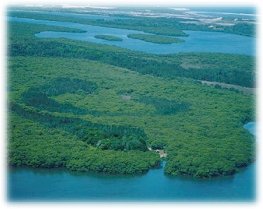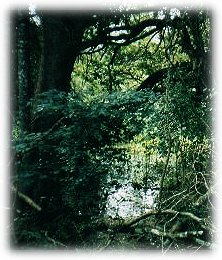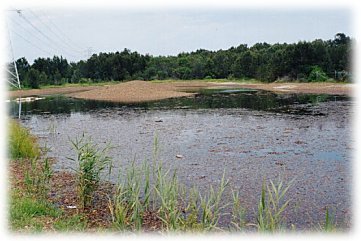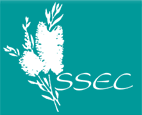Wetlands |
 |
The Kurnell Peninsula is home to Sydney's most important estuarine
wetland at Towra Point. Towra (above)
contains 50% of the mangroves and most of the saltmarsh remaining
in the Sydney region. It is a haven for a range of migratory bird
species and is one of the most important breeding sites on the Australian
east coast for the endangered Little Tern. For detailed information
about Towra Point, visit our towra
website.
In addition to extensive tidal wetlands, Towra also contains a number
of freshwater wetlands including Weedy Pond (below) in which eastern
longneck tortoises have been observed. |
 |
There are other significant wetlands on the Peninsula including
those located at Marton Park and in Botany
Bay National Park. Some of the species found in these wetlands include
Coastal Wattle, Bangalay, Swamp She Oak, Cabbage Tree Palm, Bracken
Fern, Gristle Fern, Common Reed, Cattail and others. These species
in late 2000 were listed as an Endangered Ecological Community. (More
details)
Wetlands such as these provide shelter, feeding and breeding grounds
for significant birds, reptiles and amphibians including the Green
and Golden Bell Frog. Marton Park is also listed as a significant
wetland area in the Regional Environmental Plan for the Kurnell Peninsula.
Bonna Point Reserve, also bounded by
the mangrove wetlands of Towra Point Aquatic Reserve.
In 2000, Sutherland Shire Council developed an artificial
wetland adjacent to the southern end of Captain Cook Drive (below),
to treat stormwater runoff entering Woolooware Bay. |
 |
| top of page |



